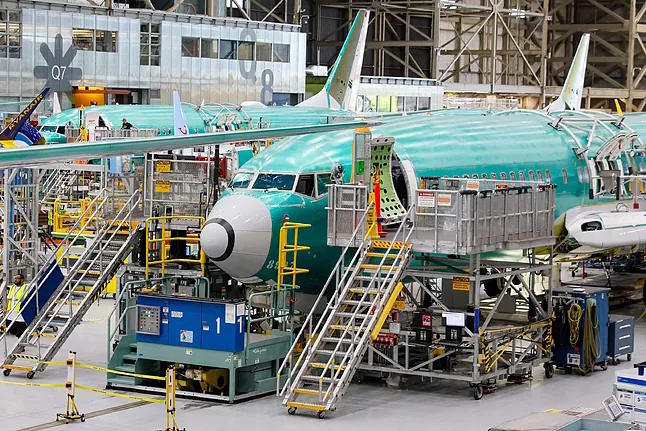No one foresaw, not even in the worst predictions, that the escalation in the trade war between the two superpowers would reach such destructive levels. The United States and China are determined to engage in a tit-for-tat tariff battle. Hours after additional tariffs of 50% on imported Chinese products came into effect, raising this year's total to 104%, the Xi Jinping government retaliated against Donald Trump with another set of measures, including an increase in tariffs to 84%.
"We will not allow anyone to deprive the Chinese people of the legitimate right to development. We will not tolerate any attempt to undermine China's sovereignty, security, and interests," said a spokesperson for the Chinese Ministry of Foreign Affairs, Lin Jian, just before Beijing's announcement. These additional tariffs (50%, increasing the tariff rate from 34% to 84%) will take effect at noon on Thursday.
In addition, Chinese authorities have stated that they will file a complaint with the World Trade Organization (WTO), and the Ministry of Commerce has included a dozen US companies on its blacklist. "We will continue to take firm and resolute measures to safeguard our legitimate rights and interests," the spokesperson continued.
Although Trump has indiscriminately expanded his tariff attacks against allies and adversaries, his recent moves demonstrate that China remains his main target after two decades of continuous trade surpluses from the Asian giant. These, according to Trump, have greatly harmed US employment and industries.
The back-and-forth between the world's top two economies exposes a reality in which neither party is currently open to negotiating a truce, although Trump said on Tuesday that he was awaiting a call from his counterpart Xi Jinping. "They are desperate to reach an agreement," he stated. On Wednesday, the Chinese president made his first comments following the escalation of the trade war, although without any direct reference to the tariffs. Xi delivered a speech on the importance of strengthening ties with Asian neighbors, who have also been severely affected by Trump's tariff shocks.
"The United States and China are locked in an unprecedented and very costly game of chicken," noted a statement from Ting Lu, chief economist at the investment bank Nomura. Beijing's resistance contrasts with the stance of its Asian neighbors, Japan and South Korea, who have already sent negotiators to Washington to engage directly with the Trump administration.
From the outset, Beijing has directed its retaliatory tariffs where they can hurt Trump the most, at his Republican base. The Chinese have retaliated against imports of US agricultural products, from corn to soybeans, mainly produced in rural areas that overwhelmingly voted for Trump in the November elections. According to the latest data from the US Department of Agriculture, the Asian giant imported $29 billion in US agricultural products, more than any other country.
The Xi Jinping government, in trying to squeeze certain Republican strongholds in the US, is following the strategy used during Trump's first trade war with China (in 2018 and 2019). Despite this, according to a report from the National Bureau of Economic Research, a group of American experts, voters in the most affected states continued to vote for Trump in the 2020 elections won by Democrat Joe Biden.
"The United States currently represents only 13% of global goods imports, a significant drop from nearly 20% two decades ago," states the latest editorial from the Global Times newspaper, one of the main media outlets of the ruling Communist Party. "Even the Financial Times of the UK has frankly stated that the importance of the US to global trade may be exaggerated. If Washington stands against the majority of countries advocating free trade and maintaining a multilateral trading system, the ultimate result will not be economic deglobalization, but the de-Americanization of the world."
